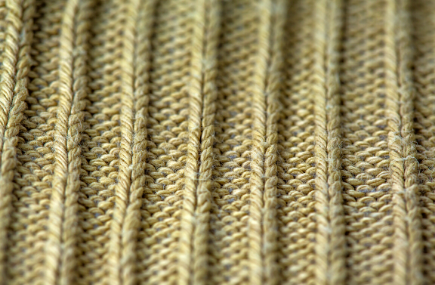The textile sector is linear, short-term focused, and heavily reliant on fossil fuels. Textile production causes air, water, and soil pollution and is a significant driver of climate change, biodiversity loss, and damage to ecosystems and human health. In recent decades the global production of clothing has increased significantly and is still growing, accelerated by a trend of ‘buy-use-throw away’ – increasing waste and the volume of unsold textiles, which are often destroyed. This exacerbates the sector’s negative impacts on both people and the planet, which disproportionally affects vulnerable stakeholders. Our vision is to limit the negative impacts of textile products on the environment and bring the textile sector back within planetary boundaries.



ECOS works to ensure that relevant EU and international policies and standards support:
Ecodesign, an EU success story, is expanding. More products than ever will soon be designed from the outset with sustainability in mind — a development that will be good for the environment and consumers. But how? And when? The Ecodesigned4LIFE project consortium, ECOS, BEUC, and ANEC, break it down.
ECOS is seeking experts on chemicals in textiles to represent and defend environmental interests in the development of standards and related policies. Our experts provide us with technical and scientific input and represent ECOS in standardisation processes and multi-stakeholder discussions.
Ecodesign is one of the EU’s crowning achievements, making products more sustainable by ensuring environmental impacts are considered from the outset. The Ecodesign for Sustainable Products Regulation (ESPR) will make this a reality for more products than ever. What will happen in 2025? How will this framework be implemented? How can every product become sustainable by default?
Over 60 civil society organisations are calling on the European Commission to support a draft French law that seeks to rein in the most harmful commercial practices in the fashion sector. In an open letter, the signatories explain how the French law would strengthen extended producer responsibility rules for textiles by penalising commercial practices that drive overproduction in the fashion sector.
Download the pdf
ECOS is co-funded by the European Commission and EFTA

 Funded by the European Union. Views and opinions expressed are however those of the author(s) only and do not necessarily reflect those of the European Union or EISMEA. Neither the European Union nor the granting authority can be held responsible for them.
Funded by the European Union. Views and opinions expressed are however those of the author(s) only and do not necessarily reflect those of the European Union or EISMEA. Neither the European Union nor the granting authority can be held responsible for them.
